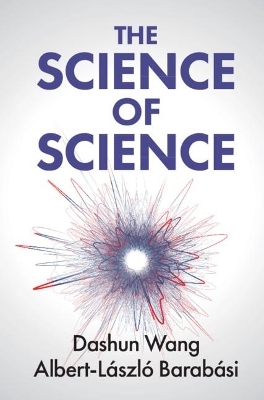
The Science of Science
Cambridge University Press (Verlag)
978-1-108-49266-9 (ISBN)
This is the first comprehensive overview of the 'science of science,' an emerging interdisciplinary field that relies on big data to unveil the reproducible patterns that govern individual scientific careers and the workings of science. It explores the roots of scientific impact, the role of productivity and creativity, when and what kind of collaborations are effective, the impact of failure and success in a scientific career, and what metrics can tell us about the fundamental workings of science. The book relies on data to draw actionable insights, which can be applied by individuals to further their career or decision makers to enhance the role of science in society. With anecdotes and detailed, easy-to-follow explanations of the research, this book is accessible to all scientists and graduate students, policymakers, and administrators with an interest in the wider scientific enterprise.
Dashun Wang is an Associate Professor at Kellogg School of Management and the founding director of the Center for Science of Science and Innovation, Northwestern University, Illinois. He is a recipient of the AFOSR Young Investigator Award and was named Poets and Quants Best 40 Under 40 Business School Professors in 2019. Albert-László Barabási is Robert Gray Dodge Professor of Network Science and Distinguished University Professor at Northeastern University, Boston, where he directs the Center for Complex Network Research. He holds appointments in the Departments of Physics and the College of Computer and Information Science, as well as in the Department of Medicine at Harvard Medical School and at Brigham and Women Hospital in the Channing Division of Network Science.
Introduction; Part I. The Science of Career: 1. Productivity of a scientist; 2. The H Index; 3. The Matthew Effect; 4. Age and Scientific Achievement; 5. Random Impact Rule; 6. The Q Factor; 7. Hot Streaks; Part II. The Science of Collaboration: 8. The increasing dominance of teams in science; 9. The Invisible College; 10. Coauthorship Networks; 11. Team Assembly; 12. Small and large teams; 13. Scientific Credit; 14. Credit Allocation; Part III. The Science of Impact: 15. Big Science; 16. Citation Disparity; 17. High Impact Papers; 18. Scientific Impact; 19. The Time Dimension of Science; 20. Ultimate Impact; Part IV. Outlook: 21. Can Science be Accelerated?; 22. Artificial Intelligence; 23. Bias and Causality in Science; Part V. Last thought; All the Science of Science: Appendix A1 Modeling team assembly; Appendix A2 Modeling Citations; References; Index.
| Erscheinungsdatum | 26.03.2021 |
|---|---|
| Zusatzinfo | Worked examples or Exercises |
| Verlagsort | Cambridge |
| Sprache | englisch |
| Maße | 158 x 235 mm |
| Gewicht | 650 g |
| Themenwelt | Informatik ► Datenbanken ► Data Warehouse / Data Mining |
| Naturwissenschaften ► Physik / Astronomie | |
| ISBN-10 | 1-108-49266-5 / 1108492665 |
| ISBN-13 | 978-1-108-49266-9 / 9781108492669 |
| Zustand | Neuware |
| Informationen gemäß Produktsicherheitsverordnung (GPSR) | |
| Haben Sie eine Frage zum Produkt? |
aus dem Bereich


